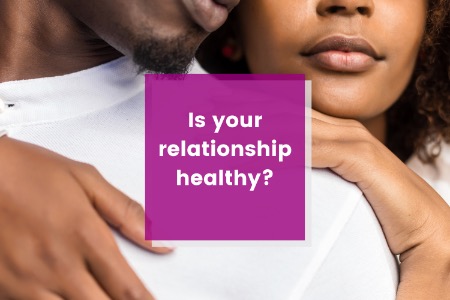Table of Contents
Introduction: Recognizing Unhealthy Relationship Signs
In the journey of love and companionship, not every relationship fosters growth and happiness. Some, unfortunately, turn out to be toxic, draining the very essence of joy and peace from one’s life. Recognizing the toxic relationship signs early can save you from profound emotional misery. In this blog, we explore the undeniable signs that highlight an unhealthy dynamic, equipping you with the knowledge to protect your well-being.
Lack of Communication: The Silent Killer of Relationships
Communication is the bedrock of a healthy relationship. When it erodes, everything else slowly starts to disintegrate. Lack of communication can manifest as avoiding discussions about feelings, future plans, or even daily events. Here’s how it affects relationships:
- Creates Misunderstandings: Without clear communication, misunderstandings flourish, leading to unnecessary conflicts.
- Builds Resentment: Unspoken issues become breeding grounds for resentment, harming the relationship further.
To foster a healthier dialogue:
- Initiate Conversations: Don’t wait for your partner. Be the one to open up lines of communication.
- Use “I” Statements: Express your feelings without blaming the other person to avoid defensive reactions.
Read more about improving communication in relationships.
Constant Criticism and Negativity: How It Erodes Self-Esteem
Continuous exposure to criticism and negativity can have a lasting impact on your self-esteem. Constant criticism and negativity from a partner can signal a toxic environment. Signs include:
- Always Pointing Out Flaws: If feedback is rarely constructive and focuses on tearing you down rather than building you up.
- Making You Feel Inferior: Criticism that makes you feel less capable or significant than your partner.
Counteract the negativity by:
- Affirming Your Worth: Remind yourself of your value, irrespective of someone else’s opinion.
- Seeking Support: Talk to friends, family, or a counselor who affirms your strengths and abilities.
Discover strategies to rebuild self-esteem after negative criticism.
Control and Manipulation: Losing Your Sense of Self
In a toxic relationship, one partner often seeks to dominate or control the other, leading to a loss of independence and self. Control and manipulation can take various forms, including:
- Dictating How You Spend Your Time: Your partner should not monopolize your schedule or prevent you from enjoying personal interests.
- Gaslighting: Making you doubt your feelings, memories, or reality is a severe form of manipulation.
Break free by:
- Setting Firm Boundaries: Clearly communicate what is not acceptable and stick to it.
- Seeking Professional Help: Sometimes, gaining perspective from a therapist or counselor is crucial in managing manipulation.
Learn how to identify and deal with manipulative behaviors.
Lack of Respect for Boundaries: The Ultimate Red Flag
Boundaries are vital for any healthy relationship. Their absence is a glaring red flag in a relationship. Disrespect for boundaries can appear as:
- Intruding on Your Privacy: Going through your phone, emails, or personal belongings without permission.
- Disregarding Your Needs: Ignoring your requests or continuously pushing past your comfort zone without consent.
To safeguard your boundaries:
- Be Clear and Firm: Communicate your boundaries clearly without ambiguity.
- Enforce Consequences: If boundaries are crossed, follow through with appropriate responses.
Understanding the importance of boundaries in relationships.
Conclusion: Recognizing Toxic Relationship Signs and Taking Action
Identifying toxic relationship signs is step one towards reclaiming your emotional health and well-being. Whether it’s through lack of communication, constant criticism and negativity, control and manipulation, or lack of respect for boundaries, understanding these red flags can empower you to make informed decisions. Remember, acknowledging the problem is the first step in solving it.
If you see these signs in your relationship, consider seeking help. Professional counseling or talking to trusted loved ones can provide you with the support you need to navigate these challenges.
Lastly, don’t forget to engage with us through comments or share this post on social media to help others in similar situations. Your story could be the beacon of hope someone needs.


